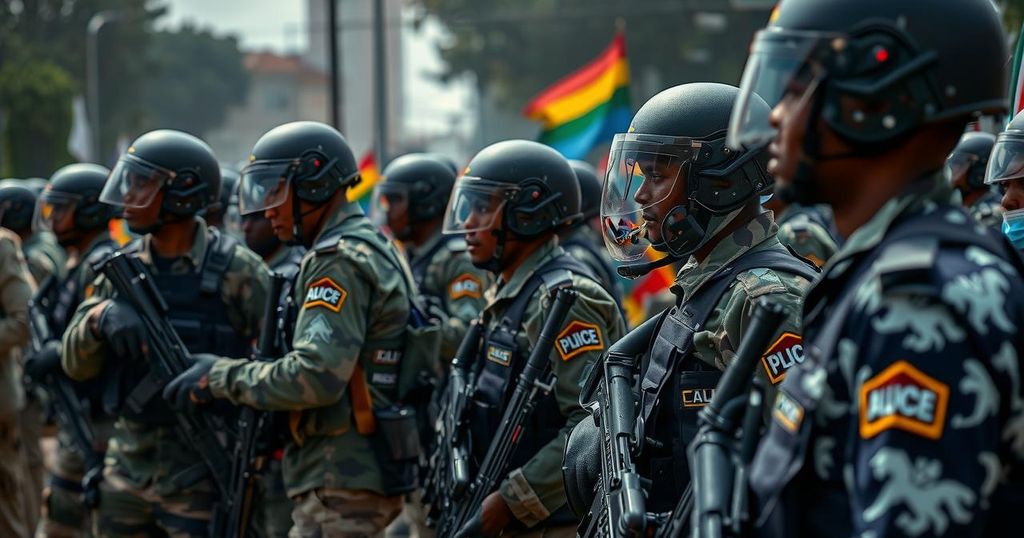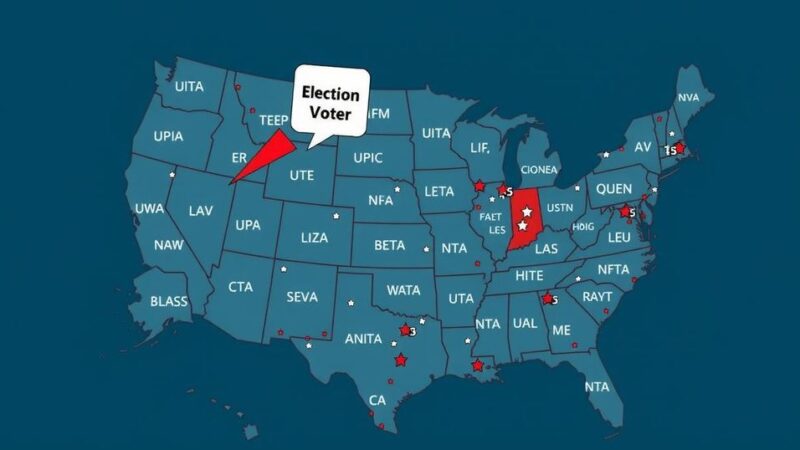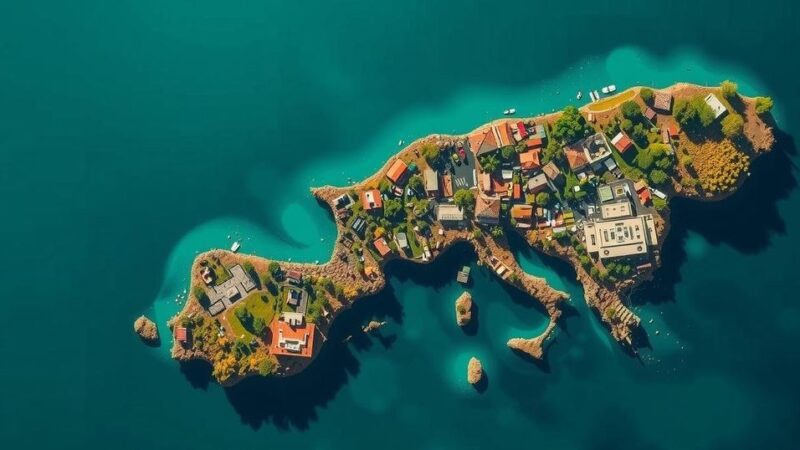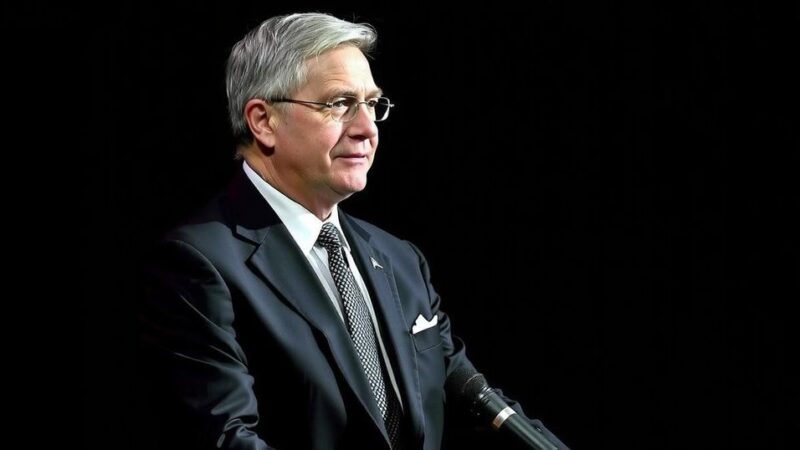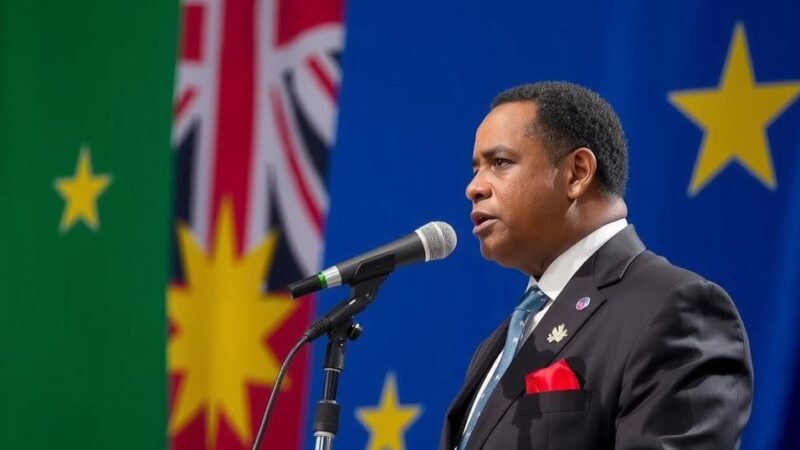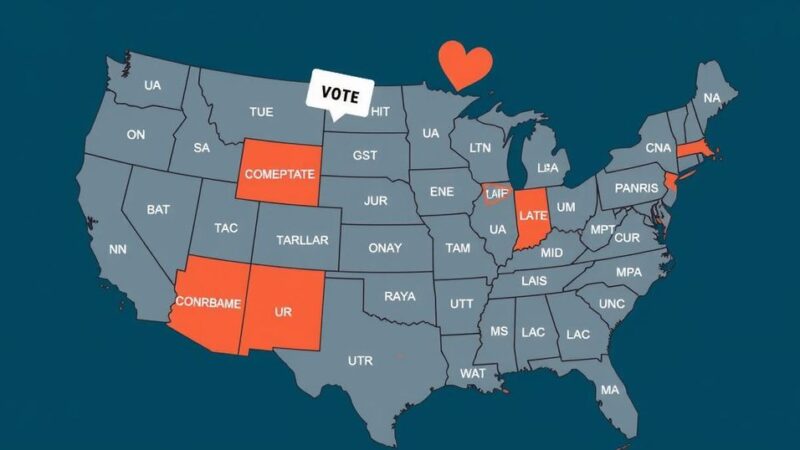Mozambique’s recent election protests have turned deadly as police have been accused of killing multiple individuals, including children, during demonstrations against the election results. Citizens, aggrieved by the ruling Frelimo party’s long-standing governance and alleged electoral fraud, have engaged in nightly protests marked by banging pots and pans. Amidst the turmoil, grieving families mourn the loss of innocent lives and demand accountability for the violence inflicted upon young protesters.
In a heart-wrenching display of grief, mourners at a cemetery in Maputo, Mozambique, bid farewell to Antonio Juaqim, a 16-year-old boy killed during one of the protests against the recent presidential election results. The protests commenced following the declaration of Daniel Chapo from the ruling Frelimo party as the election victor, obtaining 71% of the votes. Allegations of electoral fraud surfaced, particularly from Venâncio Mondlane, an independent candidate formerly associated with the main opposition party. His calls for protest led to a nightly demonstration of banging pots and pans, expressing widespread discontent with Frelimo’s administration.
Tragedy struck on the night of the first protest when police allegedly opened fire on demonstrators, resulting in the death of Antonio. His uncle, Manuel Samuel, reported witnessing footage of police firing at protesters. As reported by Human Rights Watch, the violence has claimed approximately 40 lives, including at least 10 children, raising serious concerns about police tactics and the safety of civilians engaged in peaceful dissent.
The unrest has highlighted the increasing disillusionment among Mozambican youths towards the government, with citizens demanding economic opportunities rather than reflecting on historical independence. Official responses from police maintain the narrative that officers have acted in self-defense amidst potentially violent protests. However, experts indicate this is unprecedented violence in Mozambique’s recent history. Amidst calls for justice, the families of the deceased mourn, highlighting the toll of political strife on the nation’s future generation.
Mozambique has been experiencing significant political tension following the declaration of Frelimo as the election winner in a highly contentious electoral process. The country’s leadership has remained under Frelimo since 1975, the year of its independence. This longstanding political dominance has fostered growing resentment, particularly among the youth, who are increasingly frustrated by unemployment and lack of economic prospects. The recent protests, initiated by opposition political figures, signal a critical juncture in Mozambique’s political landscape, reflecting a populace unafraid to voice their dissatisfaction with the ruling party.
The tragic events surrounding the protests in Mozambique underline the growing frustration among the youth towards the government and the dire consequences of political dissent in the country. The deaths of young individuals, including Antonio Juaqim, have spotlighted the contentious nature of the recent election and the aggressive response by police. The situation reveals a community grappling with a desire for change amidst a backdrop of fear and mourning, indicating that Mozambique may be on the precipice of significant political upheaval.
Original Source: www.bbc.com
